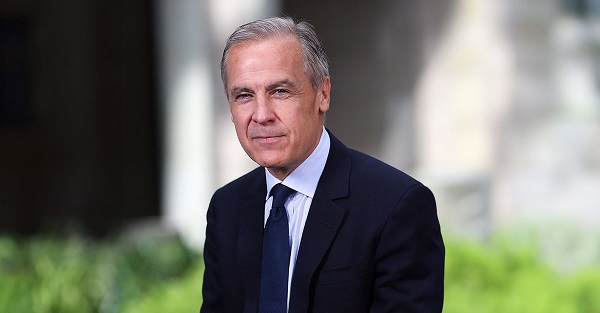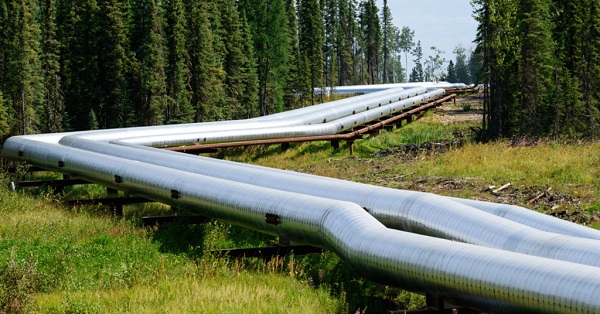Dan McTeague
Mark Carney would be bad for Canada

Carney is a champion of ESG, and the founder and co-chair of the Glasgow Financial Alliance for Net Zero (GFANZ,) which seeks to harness the might of global finance to bring about a Net-Zero global economy
Whether Carney will actually throw his hat in the ring is hard to predict. He did announce that he will “be considering this decision closely with my family over the coming few days.” But his years-long flirtation with electoral politics suggests that Carney is politically ambitious. And in the tradition of the politically ambitious, he’s lining up his constituents. At this very moment he’s busy making calls, and promises, to Liberal MPs looking for their support. Over the next several days we will hear an unending stream of praise for Carney, that he’s a ‘breath of fresh air,’ that he’s ‘just what Canada needs,’ and on and on.
Well don’t you believe it. Because one thing is for certain — Canada does not need another uber-elite, WEF hobnobbing, Green Agenda-pushing leader at the helm of any political party.
Let’s not forget who Carney is.
The former Governor of the Banks of Canada and England, Carney currently runs the megafirm Brookfield, whose offices he recently moved from Canada to the U.S., and serves as the UN Special Envoy for Climate Leadership and Finance.
Rich, established, and part of the green elite: that is Mark Carney.
I warned about Carney during the Covid-19 pandemic in 2020 when he — along with climate activist and Trudeau-whisperer Gerald Butts — was pushing hard for what he called a ‘green recovery.’ At the time Carney was framing the economic and health crisis as an opportunity to ‘leapfrog’ into a new economy. Four years later and we have all experienced first hand the real meaning of this utopian green vision — soaring energy costs which have made it harder to heat our homes, gas up our cars and buy groceries.
Conservatives call him “Carbon Tax Carney,” a nickname which his apologists have started to say is unfair, since after years of championing the Carbon Tax, he has recently distanced himself from it.
Well, of course he has! Support for the Carbon Tax has cratered across the country, and Carney is just one of many long-time supporters jumping ship in the hope that their reputation — and their wider agenda — doesn’t get sucked down with it.
Carney has been, and continues to be, a carnival barker for interventionist policies and regulation to control carbon emissions. When it comes to action on the environment and the economy Carney is of the “just do what we smart people say” school. He constantly talks of an impending climate crisis, and supports his alarmist fellow travellers like climate doomster Greta Thunberg, whom he has praised for her “many positive contributions.”
Carney has persistently advocated for strict controls on corporate governance to direct support — that is, money — towards his favored fuels and technologies. In fact, his apparent “about face” on the Carbon Tax (he said it “served a purpose up until now”) came about in the context of his Senate testimony in favor of Bill S-243, the “Climate-Aligned Finance Act,” which seeks to make it nearly impossible for banks to invest in, or loan money to, oil and gas projects in Canada, and tries to force financial institutions to appoint board members ideologically opposed to hydrocarbon energy.
Carney is a champion of ESG, and the founder and co-chair of the Glasgow Financial Alliance for Net Zero (GFANZ,) which seeks to harness the might of global finance to bring about a Net-Zero global economy. After a lot of initial excitement and acclaim (at least from the Davos-brigade), GFANZ has had trouble coping with the difficult economic times which Carney’s preferred policies have contributed to bringing about, not to mention the potential for antitrust litigation from the U.S. Department of Justice, which seems increasingly likely. Some of the group’s biggest members — Morgan Stanley, Goldman Sachs, CitiGroup, Bank of America, and Wells Fargo — have dropped out of the alliance just in the past month.
That might mean that GFANZ is not long for this world, but even so it should remain as a black mark on Carney’s résumé. It demonstrates that his economic instincts, whichsome are praising, are always towards more control, by the likes of him, over how the rest of us live our lives. And its downfall likely foreshadows what a Prime Minister Carney would do to Canada’s economy.
On energy and the environment, Carney is Trudeau with Wall Street and central bank experience: a green ideologue, but a more sophisticated one.
Canadians are fed up with green ideologues, polished or otherwise. Their ideas undermine our economic well-being, by making energy a lot more expensive. Ultimately, a Liberal Party under Mark Carney’s leadership would represent more of the same green grifting policies we saw under Justin Trudeau.
Dan McTeague is President of Canadians for Affordable Energy.

Support Dan’s Work to Keep Canadian Energy Affordable!
Canadians for Affordable Energy is run by Dan McTeague, former MP and founder of Gas Wizard. We stand up and fight for more affordable energy.
Dan McTeague
Will this deal actually build a pipeline in Canada?

By Dan McTeague
Will Carney’s new pipeline deal actually help get a pipeline built in Canada? As we said before, the devil is in the details.
While the establishment and mainstream media cheer on the new pipeline agreement, there are specific details you need to be aware of.
Dan McTeague explains in his latest video.
Business
Liberal’s green spending putting Canada on a road to ruin

Once upon a time, Canadians were known for our prudence and good sense to such an extent that even our Liberal Party wore the mantle of fiscal responsibility.
Whatever else you might want to say about the party in the era of Jean Chrétien and Paul Martin, it recognized the country’s dire financial situation — back when The Wall Street Journal was referring to Canada as “an honorary member of the Third World” — as a national crisis.
And we (remember, I proudly served as Member of Parliament in that party for 18 years) made many hard decisions with an eye towards cutting spending, paying down the debt, and getting the country back on its feet.
Thankfully we succeeded.
Unfortunately, since then the party has been hijacked by a group of reckless leftwing fanatics — Justin Trudeau and his lackeys — who have spent the past several years feeding what we built into the woodchipper.
Mark Carney’s finally released budget is the perfect illustration of that.
The budget is a 400 page monument to deficit delusion that raises spending to $644.4 billion over five years — including $141.4 billion in new spending — while revenues limp to $583.3 billion, yielding a record (non-pandemic) $78.3 billion shortfall, an increase of 116% from last year.
This isn’t policy; it’s plunder. Interest payments alone devour $55.6 billion this year, projected to hit $76.1 billion by 2029-30 — more than the entire defence budget and rising faster than healthcare transfers.
We can’t discount the possibility that this will lead to a downgrade of our credit rating, which will significantly increase the cost of borrowing and of doing business more generally.
Numbers this big start to feel very abstract. But think of it this way: that is your money they’re spending. Ottawa’s wealth is made up entirely of our tax dollars. We’ve entrusted that money to them with the understanding that they will use it responsibly. In the decade these Liberals have been in power, they have betrayed that trust.
They’ve pursued policies which have made life in Canada increasingly unaffordable. For example, at the time of writing it takes 141 Canadian pennies (up from 139 a few days ago) to buy one U.S. dollar, in which all of our commodities are priced. Well, that’s .25 cents per litre of gasoline. Imagine what that’s going to do to the price of heating, of groceries, of the various other commodities which we consume.
And this budget demonstrates that the Carney era will be more of the same.
Of course, the Elbows Up crowd are saying the opposite — that this shows how fiscally responsible Mark Carney is, unlike his predecessor. (Never mind that they also publicly supported everything that Trudeau did when he was in government.) They claim that Carney shows that he’s more open to oil and gas than Trudeau was.
Don’t believe it.
The oil and gas sector does get a half-hearted nod in the budget with, for instance, a conditional pathway to repeal the emissions cap. But those conditions are important. Repeal is tied to the effectiveness of Carney’s beloved industrial carbon tax. If that newly super-charged carbon tax, which continues to make our lives more expensive, leads to government-set emissions reductions benchmarks being met, then Ottawa might — might — scrap the emissions.
Meanwhile, the budget doubles down on the Trudeau government’s methane emissions regulations. It merely loosens the provisions of the outrageous Bill C-59, an act which should have been scrapped in its entirety. And it leaves in place the Trudeaupian “green” super structure, which has resource sector investment, and any business that can manage it, fleeing to the U.S.
In these perilous times, with Canada teetering on the brink of recession, a responsible government would be cutting spending and getting out of the way of our most productive sectors, especially oil and gas — the backbone of our economy.
It would be repealing the BC tanker ban and Bill C-69, the “no more pipelines act,” so that our natural resources could better generate revenue on the international market and bring down energy rates at home.
It would quit wasting millions on Electric Vehicle charging stations; mandating that all Canadians buy EVs, even with their elevated cost; and pressuring automakers to manufacture Electric Vehicles, regardless of demand, and even as they keep closing up shop and heading south.
But in this budget the Liberals are going the opposite direction. Spend more. Tax more. Leave the basic Net-Zero framework in place. Rearrange the deck chairs on the Titanic.
They’re gambling tomorrow’s prosperity on yesterday’s green dogma, And every grocery run, every gas fill-up, every mortgage payment will serve as a daily reminder that we are the ones footing the bill.
Once upon a time, the Liberals knew better. We made the hard decisions and got the country back on its feet. Nowadays, not so much.
-

 National1 day ago
National1 day agoCanada’s free speech record is cracking under pressure
-

 Energy21 hours ago
Energy21 hours agoTanker ban politics leading to a reckoning for B.C.
-

 Energy21 hours ago
Energy21 hours agoMeet REEF — the massive new export engine Canadians have never heard of
-

 Business1 day ago
Business1 day agoTaxpayers Federation calls on politicians to reject funding for new Ottawa Senators arena
-

 Censorship Industrial Complex2 days ago
Censorship Industrial Complex2 days agoOttawa’s New Hate Law Goes Too Far
-

 Fraser Institute22 hours ago
Fraser Institute22 hours agoClaims about ‘unmarked graves’ don’t withstand scrutiny
-

 Business21 hours ago
Business21 hours agoToo nice to fight, Canada’s vulnerability in the age of authoritarian coercion
-

 Business1 day ago
Business1 day agoAlbertans give most on average but Canadian generosity hits lowest point in 20 years






